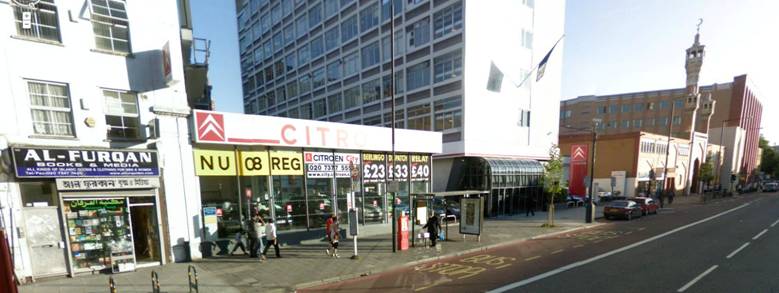
The Daily Telegraph reports on the conviction of Ahmed Faraz for producing and distributing extremist literature (“Terrorists’ favourite bookseller guilty”). According to the report:
“Faraz made profits of at least £62,000 and employed a number of salesmen, sending unsolicited copies of his books to Islamic shops around the country. Financial records showed that he had distributed his wares to bookshops including the al-Furqan bookshop at East London Mosque….”
But the al-Furqan bookshop has no connection to the East London Mosque and isn’t even geographically adjacent to it, being situated some distance away down Whitechapel Road, as the Telegraph‘s intrepid Security Correspondent could have found out if he had bothered to check Google Street View (see photo above).
For the wider issues raised by the conviction of Ahmed Faraz, see Fahad Ansari, “Do books ‘prime people for terrorism’?”, New Statesman blog, 15 December 2011
Update: The Telegraph report has now been amended to read “he had distributed his wares to bookshops including the al-Furqan bookshop close to East London Mosque”. But this hardly improves matters. If the al-Furqan bookshop was indeed located “at East London Mosque”, then that would have been a relevant piece of information. As the bookshop is not part of the East London Mosque and has no connection to it, what possible purpose is there in informing Telegraph readers that the bookshop is “close to” the mosque – other than to smear the mosque by falsely associating it with what is claimed to be extremist literature?
